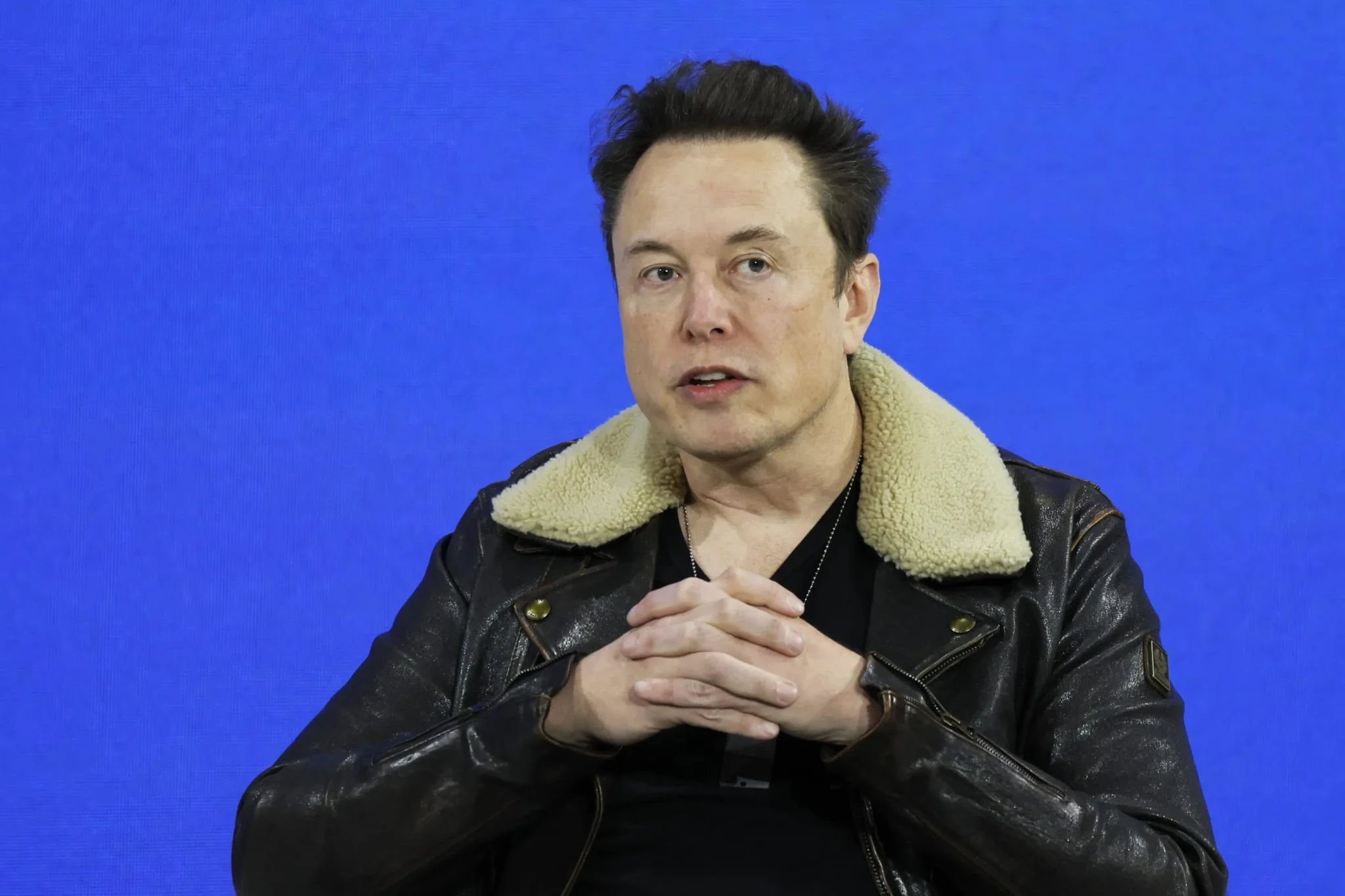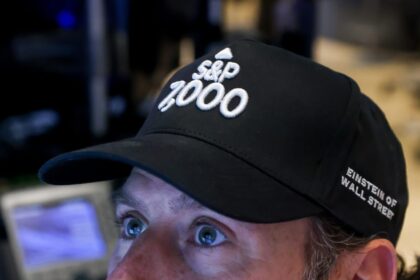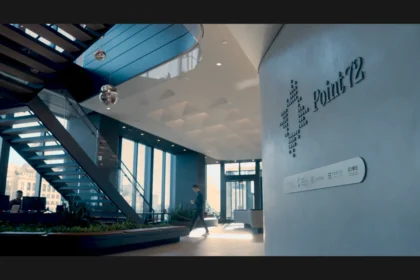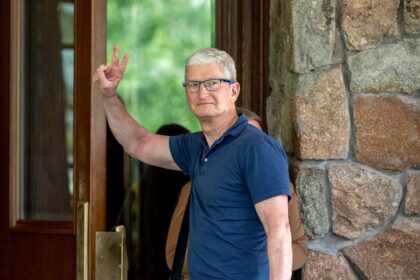Elon Musk’s The Boring Company, a venture known for its ambitious underground transportation tunnels, is facing renewed scrutiny after Nevada regulators fined it nearly $500,000 for illegally dumping drilling fluids into public sewer systems—and for allegedly attempting to mislead authorities about compliance.
The infractions, uncovered by the Nevada Division of Environmental Protection (NDEP), stem from repeated violations during the company’s tunneling operations in Las Vegas, where it has been expanding its “Vegas Loop”—a high-speed underground transit network designed to connect major city landmarks.
- Elon Musk’s The Boring Company, a venture known for its ambitious underground transportation tunnels, is facing renewed scrutiny after Nevada regulators fined it nearly $500,000 for illegally dumping drilling fluids into public sewer systems—and for allegedly attempting to mislead authorities about compliance.
- The Violations: Dumping Drilling Fluids into City Manholes
- The Fine and the Fallout
- Feigned Compliance: A Pattern of Evasion
- The Vegas Loop: Vision Meets Reality
- A History of Friction with Regulators
- Environmental and Legal Implications
- Public Reaction: Growing Skepticism Over Musk’s Projects
- Broader Implications: The Cost of Cutting Corners
- Conclusion: A Lesson Beneath the Surface
According to state documents, the company not only violated environmental regulations but also “feigned compliance”after being caught the first time, only to repeat the same actions weeks later. The revelations have sparked questions about the company’s operational ethics, environmental oversight, and the broader accountability of Elon Musk’s expanding portfolio of high-profile enterprises.
The Violations: Dumping Drilling Fluids into City Manholes
The Boring Company’s fine stems from its disposal of bentonite-based drilling fluids—a clay and water mixture used to lubricate drilling machines and stabilize tunnel walls. While the material is not classified as hazardous waste, it requires proper disposal and treatment due to its potential to clog sewage systems and contaminate local water sources.
According to the NDEP investigation, workers associated with The Boring Company discharged thousands of gallons of these fluids directly into city manholes connected to the municipal sewer system. The first incident, discovered in early 2025, prompted an immediate order for corrective action and compliance verification.
However, subsequent inspections found the company had resumed the illegal discharges, despite having pledged to cease such activity and to establish containment procedures. Regulators accused the firm of “failing to take corrective steps” and “misrepresenting compliance status” in follow-up reports.
“The company’s actions demonstrated a disregard for both state regulations and prior enforcement efforts,” the NDEP wrote in its summary report.
The Fine and the Fallout
As a result, the state imposed a $475,000 penalty, citing repeated violations, deception in reporting, and potential environmental harm. Officials stopped short of ordering a suspension of tunneling operations but warned that future infractions could lead to work stoppages, project delays, or criminal referral.
The Boring Company, in a brief statement, said it is “working cooperatively with Nevada authorities to resolve the matter” and that the incident involved “a miscommunication between contractors.”
Yet internal documents reviewed by state inspectors suggest the violations were systemic, not accidental. Several employees reportedly raised concerns internally about waste management practices but were told to “keep the project on schedule.”
Feigned Compliance: A Pattern of Evasion
What has drawn the most attention is the regulator’s finding that The Boring Company “feigned compliance” after its first infraction. Investigators said the company appeared to temporarily halt discharges during inspections, only to resume them shortly after oversight was lifted.
This alleged deception has intensified scrutiny not only from environmental regulators but also from Las Vegas city officials, who oversee the infrastructure where the dumping occurred. One city engineer described the company’s approach as “reckless and dismissive,” adding that such practices “could undermine trust in public-private partnerships for future infrastructure projects.”
For Musk’s company—which relies on local cooperation for permits and expansion rights—such reputational damage could have broader implications.
The Vegas Loop: Vision Meets Reality
The Boring Company’s Vegas Loop is among its most visible and ambitious projects to date. The underground transport system currently connects key points across the Las Vegas Convention Center, and expansion plans aim to extend tunnels to Harry Reid International Airport, the Strip, and downtown Las Vegas.
Promoted as a revolutionary alternative to surface traffic congestion, the Loop’s tunnels are designed for Tesla vehiclesthat can shuttle passengers at high speed through the subterranean network.
However, the project has been beset by engineering delays, cost overruns, and regulatory headaches—challenges that mirror the company’s growing pains in other cities.
Environmental groups and local residents have raised alarms about water table disruption, soil contamination, and waste management. The latest fine adds fuel to those criticisms, suggesting that the company’s zeal for rapid expansion may be coming at the expense of compliance.
A History of Friction with Regulators
The Boring Company’s Las Vegas infractions are not its first regulatory clash. Across the U.S., Musk’s tunneling venture has faced permits disputes, environmental objections, and skepticism from urban planners.
- In California, early attempts to construct test tunnels drew opposition over environmental assessments.
- In Texas, the company’s plans for larger tunnels near Austin triggered complaints about unpermitted waste disposal.
- Federal agencies have reportedly expressed concern about the company’s “build fast, ask later” approach—a strategy that has worked in Musk’s other ventures but often tests regulatory patience.
Musk himself has repeatedly criticized what he calls “bureaucratic inefficiency,” framing The Boring Company as a disruptor of outdated infrastructure practices. But that stance now appears to be colliding with the realities of environmental regulation and municipal oversight.
Environmental and Legal Implications
While the $500,000 fine may appear minor for a Musk-owned company, environmental law experts say the case could have serious legal and operational consequences.
Under Nevada’s environmental statutes, repeated willful violations can lead to civil penalties up to $25,000 per day, and regulators retain the authority to suspend or revoke operational permits.
Moreover, if evidence emerges that employees were directed to conceal violations or falsify reports, the matter could escalate into a criminal investigation.
“The financial penalty is just one layer,” explains environmental attorney Sarah Nguyen. “The larger risk is the loss of trust from regulators—and the potential precedent it sets for future projects.”
Public Reaction: Growing Skepticism Over Musk’s Projects
Public opinion in Las Vegas has begun to shift. Once viewed as a technological marvel, the Vegas Loop is now facing growing skepticism. Some residents question whether the project’s touted efficiency and environmental benefits are being undermined by poor operational practices.
Local newspapers and city council members have called for independent oversight of The Boring Company’s construction sites, citing transparency concerns. Environmental activists have gone further, demanding a full audit of the company’s waste management protocols and its contractors.
Online, critics point to the incident as another example of what they call “Musk’s empire of shortcuts”—a pattern of pushing projects forward aggressively, sometimes at the expense of safety or regulation.
Broader Implications: The Cost of Cutting Corners
The controversy underscores a broader tension at the heart of Musk’s sprawling business ecosystem: the clash between innovation speed and regulatory compliance.
From SpaceX’s rapid rocket development to Tesla’s autonomous vehicle testing, Musk’s ventures have long operated on the edge of what’s legally and logistically permissible. The Boring Company’s Las Vegas troubles suggest that such tactics may no longer go unnoticed—or unpunished—by local and state authorities.
“Innovation doesn’t exempt you from the rule of law,” says policy analyst Michael Brennan. “When companies take public resources underground, the public expects accountability, not just ambition.”
Conclusion: A Lesson Beneath the Surface
The Boring Company’s fine marks more than just an environmental infraction—it’s a symbolic reminder of the fragility of public trust in the tech-driven infrastructure era.
As the company continues expanding its tunnels beneath Las Vegas and other cities, it faces a crucial test: proving that it can balance speed with responsibility, and ambition with transparency.
If it fails to do so, the story of Musk’s tunnels may shift from one of visionary progress to a cautionary tale about what happens when innovation digs too deep—without looking where it’s dumping.







